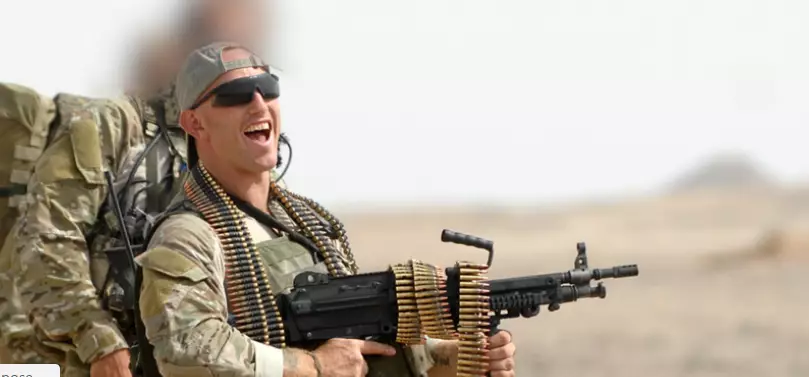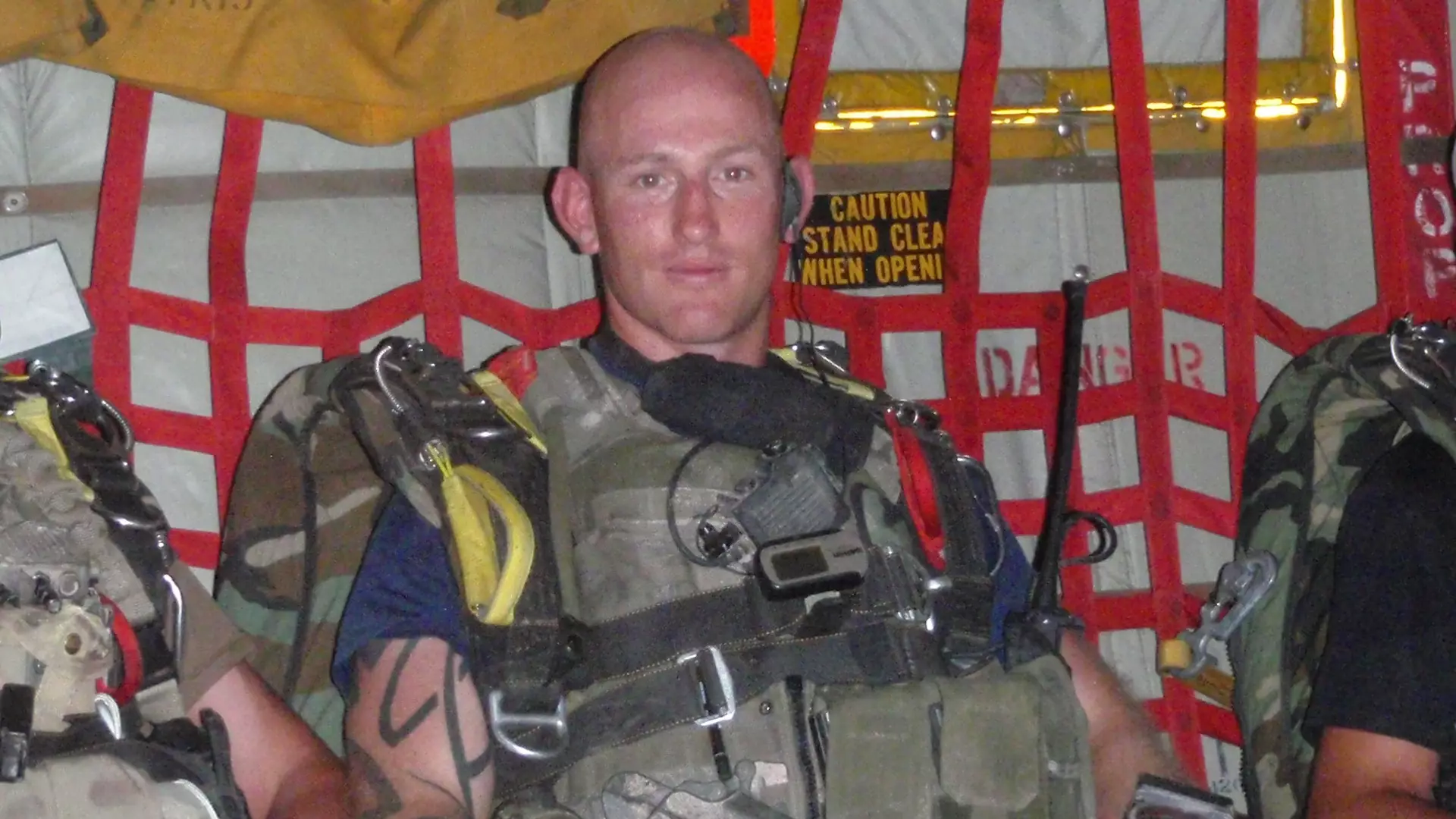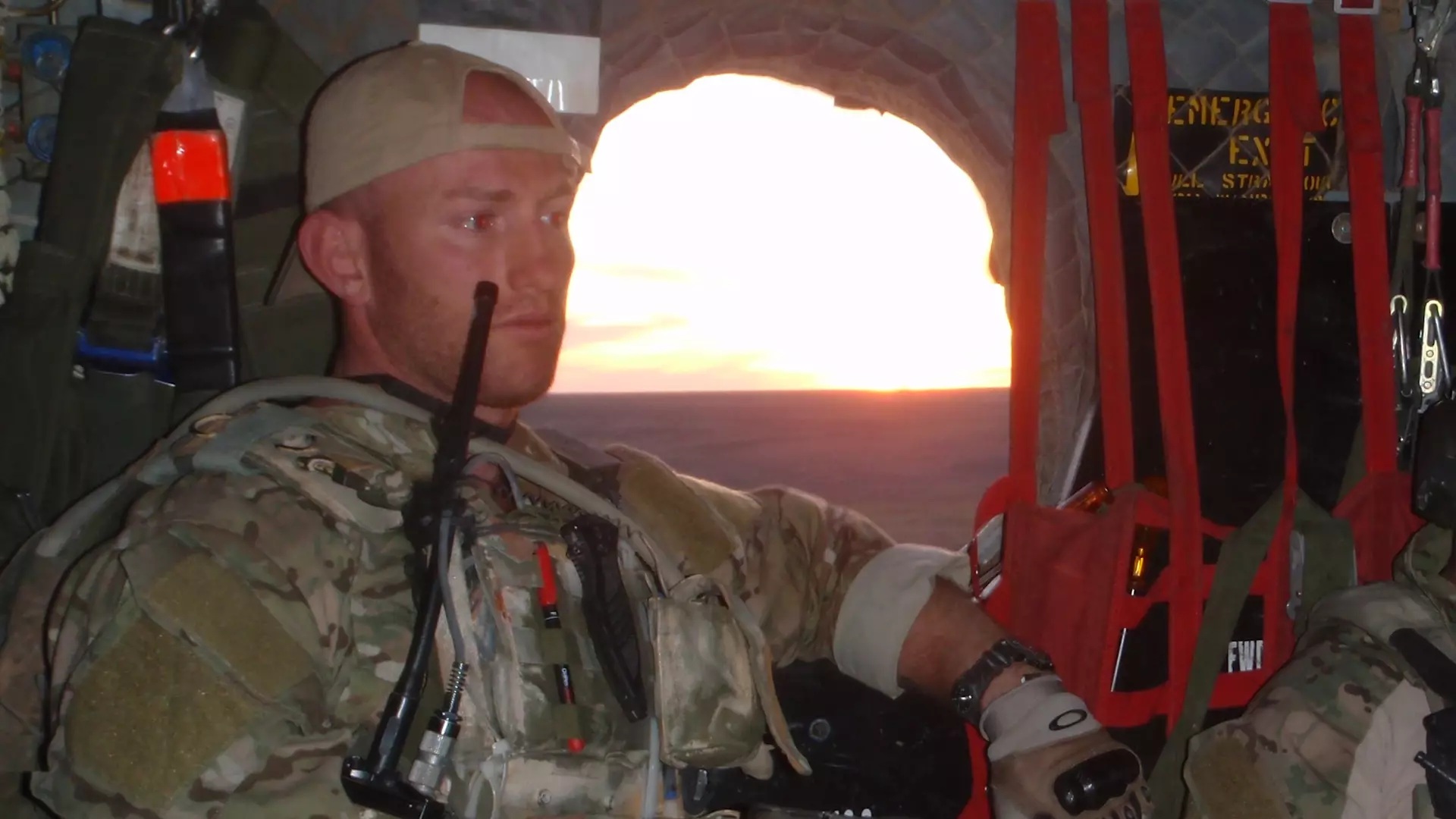
British Special Forces are widely recognised as the best in the world. Next year the SBS (Special Boat Service) celebrate their 75th anniversary. And now, a former member of this world-famous unit is revealing some of their astonishing secrets.
Dean Stott is a 39-year-old man from the south of England. To look at, he's powerfully built with stocky legs and a broad chest. But his steely eyes hint at more than physical strength. Until recently, Dean served within the SBS, one of the Britain's most elite fighting forces. He has walked the walk in every sense.
"The role within UK Special Forces is so dangerous that no book, film or video game could compare to the real thing," Dean tells TheLADbible, answering the question he's asked the most by people who learn about his past. "The situation, atmosphere, sounds, adrenaline and even smells you experience can never be relayed through any media.
"You are the tip of the spear. When the pager goes or when the call comes in, you have to be ready. The training and operational tempo are fierce. We are literally training all the time and keeping in-date for so many skill sets. Then, when it comes to being operational, we are in the best position to execute and complete that mission successfully.
"In the SBS we always go in with an objective and a plan - and it's a good plan. But nobody can plan for the first round to come down. Then, everything changes and you adapt to the situation as it unfolds."

Credit: Dean Stott
Advert
Hearing him talk in this way is impressive. Clearly, Dean's eluding to much more - mission details he cannot reveal for reasons of national security. Everything about the SBS is deemed top secret by the British Government, and very little is known about their daily activity.
One thing you may have heard of, though, is how UK special forces are chosen to serve. For that, the SBS and the SAS both turn to one of the most gruelling training programmes ever created - a six-month course called "Selection".
Remembering his time on Selection, Dean says: "Some guys find the Hills Phase or the Jungle Phase the toughest elements of the course, but for me it was maintaining that drive and professionalism for the entire six-month duration."
Whilst on Selection, participants are physically and mentally thrashed over the toughest terrain imaginable, all over the world. It's designed to push them to their absolute limits, and only the best make it through.
"On the Survival Evasion Resistance and Extraction part of the course, myself and my patrol got separated," Dean explains. "I had to remain hidden for the entire evening whilst there was what we call 'danger-close'. This seems easy enough, but is made even more difficult as you are already exhausted due to lack of sleep and food, as well as covering considerable distances through the night."

Credit: Dean Stott
Advert
Passing the course was one of Dean's biggest achievements and proudest moments. But he would soon face a bigger test - fitting in among some of the fiercest soldiers in one of the UK's top fighting units.
"Once you finally join your squadron, it is great to finally have completed all the training and settle into squadron life, which is a high tempo of training and operations," he says. "Your squadron are now your family; you all have something in common and so naturally you all have a bond and a mutual respect. You will be living and operating with these guys during the coming years and so close friendships, trust and comradeship soon develop."
But Dean didn't have long to settle in. Thrust into action, his first mission represented a huge moment in the history of the SBS. Since their formation during WWII, the men of the Special Boat Service have specialised in maritime, amphibious and riverine environments. But suddenly Dean and his squadron were being tasked with entering a hostile environment in a completely new way. There was no room for error.
"At this time, there were a lot of eyes monitoring the mission for future operations," Dean recalls. "It all seemed to be going okay but actually one guy had knocked himself out, and this was before we'd even properly got started.
"These missions are not always executed like you see on the TV; this is the nature of the beast with so many possibilities or scenarios - you just need to be able to adapt to these and react accordingly as they arise.
"Anyway, the mission was a success and we got out, but it was only later on the helicopter back to camp that I finally breathed a sigh of relief and absorbed that night's activities. For my first mission, I'd done a good job, and delivered what was asked of me"
This was just the start of Dean's action-packed journey with the special forces. Other, much more dangerous missions were still to come.
"You get used to rounds coming down, over time." Dean says. "There have been a couple of occasions when I didn't know if I'd make it out alive. Once, we got news that some lads in the British Armed Forces we knew had been attacked, and been killed. We then got intelligence through about the location of the attackers, and we decided to move. It was a massive risk because of the time of day and the location. We deployed and intercepted their vehicles, but as we were doing this we got news that the enemy were converging on our position. We got the guys we had gone after, but it was a close call."
Surprisingly, though, Dean's most frightening experience didn't involve a single bullet.
"Once I was driving in enemy territory, and I turned into a market square," Dean remembers. "I thought I was blending in, but suddenly I could see all these eyes were looking at me, and I thought I'd been compromised. I literally thought I was a goner. There was no way I was getting out of it - there were too many people.
"I got on the radio to tell the team, and then started to reach for my weapon. I couldn't figure out what had gone wrong and how I'd been compromised. Your mind is trying to absorb so much information. Suddenly, one of the lads in another car behind me also turned into the square and came on the radio to tell me that something was hanging out of my car door. That's what everyone was looking at - not me. It sounds like nothing, but it was a really hairy moment. I thought I was done for, and thing could have turned nasty."
Dean's war stories are terrifying and enthralling at the same time. He tells them with both detail and pride in equal measure. There is no hesitation, and seemingly no inner turmoil or regret. Whatever Dean has seen or done, he's dealt with it and moved on.
"Some things will stay with me forever," he says. "But I've had fantastic support from my friends and family. How you deal with stuff is important - we talk a lot in the SBS, and there's tons of black humour, too. Everyone is different and deals with it in a different way though."
Dean's stories also shed light on the importance of the SBS - even if we never fully hear about their exploits. At times, though, the SBS are often overlooked by members of the public, in favour of the more-famous SAS.
Dean says that he is also often asked about this. He jokes: "SAS stands for 'Surprisingly Average Solider' and SBS stands for 'Slightly Better Solider'. But I would say that! I do have a lot of friends in the SAS, though."
His humour reflects the healthy rivalry between the two elite fighting groups, which is based on mutual respect if not actual fondness.
"It is a better relationship now than it ever has been," he says. "The SBS and SAS mostly mirror each other in terms of skill sets and readiness, but these guys are also very proud of what they do separately. There's always going to be competition, though."
In 2011, Dean waved goodbye to his SBS brothers-in-arms and left to start a new career. But the success of his missions will last a lifetime. So too with the special bond he continues to share with his former comrades.
"Without a doubt, I miss the blokes and the banter, and feeling part of a tight-knit community," he says. "Within the military, it doesn't matter if you saw the lads last week or even if years have passed - the drinks start, along with the laughter and it feels like you have never been away. I'm very proud of having served and operated within the SBS and amongst world-class operators. It is a great sense of self achievement. And it's cool, I won't lie - and it beats any computer game or book."
Words By Mark Tattersall
Advert
Featured Image Credit: Dean Stott
Featured Image Credit: